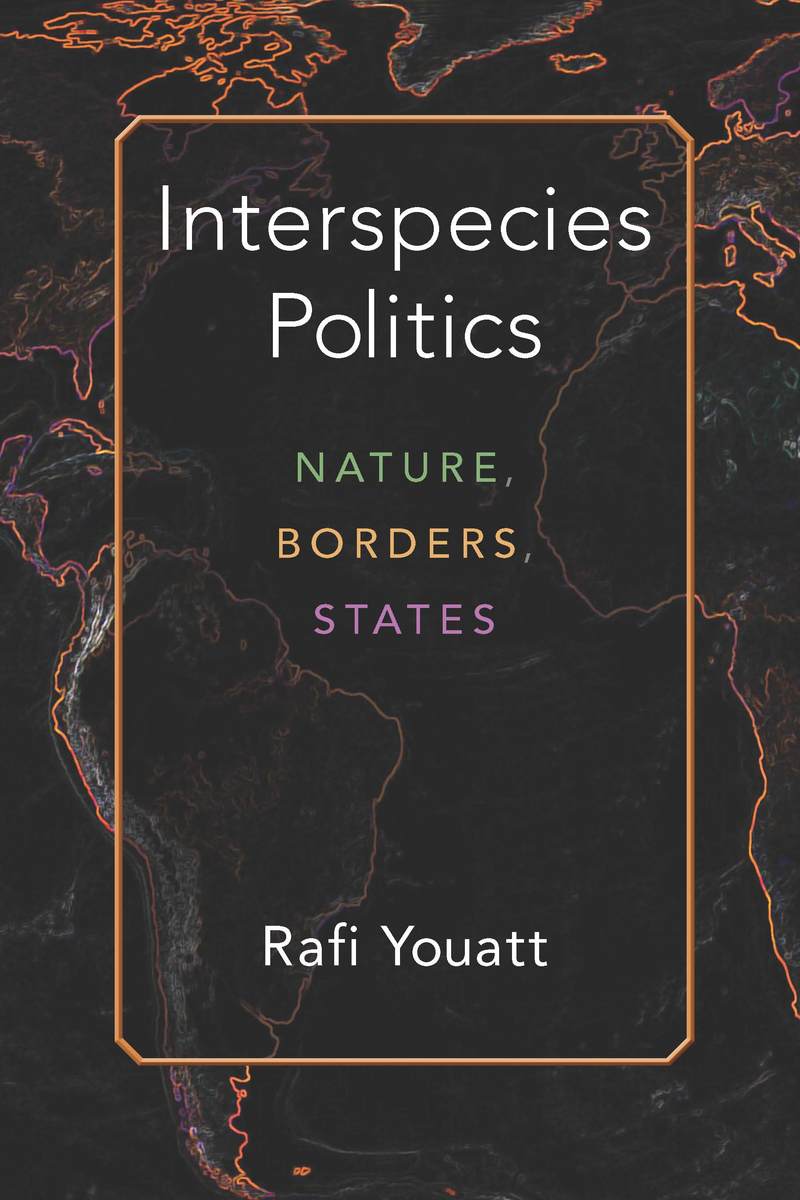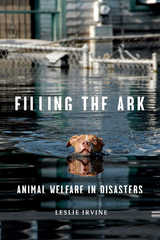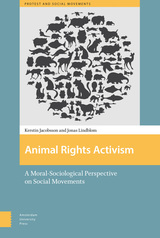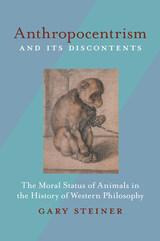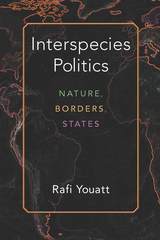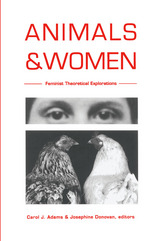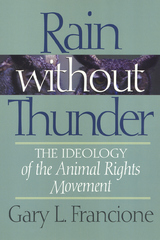Honorable Mention for the 2020 WPSA Clay Morgan Award for Best Book in Environmental Political Theory
— WPSA, Clay Morgan (CM) Award for Best Book in Environmental Political Theory
"Youatt (New School for Social Research) proposes that the relationships among species be understood or conceptualized as relationships among independent entities, thus broadening the set of relevant entities examined by traditional political science to include not just nation-states, empires, or city-states, but also different species apart from humans: an 'interspecies assemblage.' The work sets out a radical challenge to the social sciences, particularly political science, and will be of interest to advanced undergraduates, graduate students, and professionals." - CHOICE
— CHOICE
"Rafi Youatt’s book is an innovative and necessary intervention, making a significant contribution by explicitly incorporating animals as political subjects into International Relations theory... This is an important contribution considering environmental issues remain peripheral in International Relations and explicit engagements with animals as political actors are even rarer... This book lays a firm foundation for a number of future research avenues." - Environmental Politics
— Environmental Politics
"Of the three books reviewed here, Youatt’s contribution is the most theoretically ambitious and engaging. It uses critical political theory with the normative aim of political freedom, or “relational freedom” (9) for humans... Youatt engagingly deconstructs and then constructs human–nonhuman relations through the lens of posthumanism and aims to practice “relating politically with nonhuman life” (13)." - Global Environmental Politics
— Global Environmental Politics
"Youatt convincingly argues that international relations (IR) is particularly well positioned to address our interspecies reality, because it is the field of political science that remains attentive to the relationships of interdependent or competing communities, which for Youatt includes animal populations and natural bodies." - Perspectives on Politics
— Perspectives on Politics
"A key strength of Youatt’s text lay in his ability to interpret case studies while sticking close to the theoretical framework he develops... Youatt’s work is compelling in its ability to both demonstrate his intended methodology and to raise provocative points and necessary questions about who actually engages in international politics and what an interspecies politics means for continued research and policy making" - New Political Science
— New Political Science
"A key strength of Youatt’s text lay in his ability to interpret case studies while sticking close to the theoretical framework he develops... Youatt’s work is compelling in its ability to both demonstrate his intended methodology and to raise provocative points and necessary questions about who actually engages in international politics and what an interspecies politics means for continued research and policy making" - New Political Science
— New Political Science
"In Interspecies Politics: Nature, Borders, States by Rafi Youatt explores instances in which relations between human and nonhuman beings complicate and transform our conventional understandings of politics. This is an important contribution to burgeoning transdisciplinary scholarship that demonstrates not only the injustices that anthropocentrism inflicts upon human and nonhuman worlds, but also how it makes us systematically misunderstand ourselves" - LSE Review of Books
— LSE Review of Books
"Rafi Youatt’s book is an innovative and necessary intervention, making a significant contribution by explicitly incorporating animals as political subjects into International Relations theory... This is an important contribution considering environmental issues remain peripheral in International Relations and explicit engagements with animals as political actors are even rarer... This book lays a firm foundation for a number of future research avenues." - Environmental Politics
— Environmental Politics
"Youatt convincingly argues that international relations (IR) is particularly well positioned to address our interspecies reality, because it is the field of political science that remains attentive to the relationships of interdependent or competing communities, which for Youatt includes animal populations and natural bodies." - Perspectives on Politics
— Perspectives on Politics
“Youatt’s work on ‘interspecies politics’ is a far-reaching analysis of issues such as sovereignty, borders, postcoloniality, and indigeneity in relation to the human/ non-human relationship. The result is an exciting and insightful work that is in the forefront of efforts to change the Aristotelian androcentric and speech-centered paradigm of politics.”
—Judith Grant, Ohio University
— -
“This smart and original book explores, with exceptional lucidity, how concepts central to international relations theory might be reconfigured to capture the dynamics of interspecies interaction. Interspecies Politics makes a compelling case for rethinking not only international relations but politics itself as something we do with, not to, the nonhuman world.”
—Kimberly Smith, Carleton College
— -
"Youatt’s demonstration that international politics are inherently interspecies is convincing and helps us rethink key IR (International Relations) tenets through the lens of post-humanism. It will therefore provide insightful and exciting material for researchers and students of IR, Political Science, Political Geography, and Environmental Politics, and a solid foundation for future research avenues" - Society and Animals
— Society and Animals
Honorable Mention: Western Political Science Association (WPSA) 2020 Clay Morgan Award for Best Book in Environmental Political Theory
— WPSA Clay Morgan Award for Best Book in Environmental Political Theory
"Youatt (New School for Social Research) proposes that the relationships among species be understood or conceptualized as relationships among independent entities, thus broadening the set of relevant entities examined by traditional political science to include not just nation-states, empires, or city-states, but also different species apart from humans: an 'interspecies assemblage.' The work sets out a radical challenge to the social sciences, particularly political science, and will be of interest to advanced undergraduates, graduate students, and professionals." - CHOICE
— CHOICE
"Of the three books reviewed here, Youatt’s contribution is the most theoretically ambitious and engaging. It uses critical political theory with the normative aim of political freedom, or “relational freedom” (9) for humans... Youatt engagingly deconstructs and then constructs human–nonhuman relations through the lens of posthumanism and aims to practice “relating politically with nonhuman life” (13)." - Global Environmental Politics
— Global Environmental Politics
